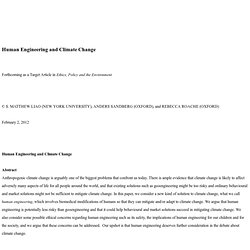

It Begins: Pedophiles Call for Same Rights as Homosexuals. Excerpted from the Northern Colorado Gazette: Using the same tactics used by “gay” rights activists, pedophiles have begun to seek similar status arguing their desire for children is a sexual orientation no different than heterosexual or homosexuals.

Critics of the homosexual lifestyle have long claimed that once it became acceptable to identify homosexuality as simply an “alternative lifestyle” or sexual orientation, logically nothing would be off limits. “Gay” advocates have taken offense at such a position insisting this would never happen. However, psychiatrists are now beginning to advocate redefining pedophilia in the same way homosexuality was redefined several years ago.
In 1973 the American Psychiatric Association declassified homosexuality from its list of mental disorders. B4U-Act calls pedophiles “minor-attracted people.” Pedophilia has already been granted protected status by the Federal Government. Dr. How Memory Works: 10 Things Most People Get Wrong. Human memory and recall works nothing like a computer, but that’s what makes it all the more fascinating to understand and experience. “If we remembered everything we should on most occasions be as ill off as if we remembered nothing.” ~William James It’s often said that a person is the sum of their memories. Your memory and recall is what makes you who you are. Despite this, memory and recall is generally poorly understood, which is why many people say they have ‘bad memories’.
Here is my 10-point guide to the psychology of memory and recall (it is based on an excellent review chapter by the distinguished UCLA memory expert, Professor Robert A. 1. Everyone has experienced the frustration of not being able to recall a fact from memory. Looper_Infographic_FULLtrim.jpg (2450×1730) The Drug That Never Lets Go. Photo By @FatTonyBMX Dickie Sanders was not naturally prone to depression.

The 21-year-old BMX rider was known for being sweet spirited and warm -- a hugger not a hand-shaker. The kind of guy who called on holidays. Who helped his father on the family farm. Who spent countless hours perfecting complicated tricks on his bike. Yet on Nov. 12, 2010, Sanders was found dead on the floor of his childhood bedroom. PBS NewsHour Science Support Provided By The National Science Foundation, the Howard Hughes Medical Institute, the Gordon and Betty Moore Foundation and the S.D. The suicide was the culmination of five days of strange behavior that began shortly after Sanders snorted a powdery substance he bought from a friend. “I don't like the way this is making me feel," Sanders told his stepmother, Julie, as the two awaited his release from the hospital. Clive Wearing - The man with no short-term memory. 10 Mind-Boggling Psychiatric Treatments. By Dan Greenberg Nobody ever claimed a visit to the doctor was a pleasant way to pass the time.

But if you're timid about diving onto a psychiatrist's couch or paranoid about popping pills, remember: It could be worse. Like getting-a-hole-drilled-into-your-skull worse. The psychological syndrome that causes you to speak with a fake foreign accent. This column will change your life: were we living the Olypmic dream, or was it mass delerium?
I. Human Engineering and Climate Change Abstract Anthropogenic climate change is arguably one of the biggest problems that confront us today.

There is ample evidence that climate change is likely to affect adversely many aspects of life for all people around the world, and that existing solutions such as geoengineering might be too risky and ordinary behavioural and market solutions might not be sufficient to mitigate climate change. In this paper, we consider a new kind of solution to climate change, what we call human engineering, which involves biomedical modifications of humans so that they can mitigate and/or adapt to climate change. We argue that human engineering is potentially less risky than geoengineering and that it could help behavioural and market solutions succeed in mitigating climate change. I. Anthropogenic climate change, or climate change for short, is arguably one of the biggest problems that confront us today. II. Pharmacological meat intolerance Making humans smaller. VHEMT. Sure, We Can Build a Better Toilet. But Will People Use It?
A latrine over water in Cap-Haitien, Haiti.

Photo: Remik Kaupp/Flickr The Gates Foundation’s plan to build a better toilet has inspired optimism for the future of sanitation in the developing world. But if history is any guide, good intentions and clever engineering aren’t enough. Would-be designers of post-porcelain thrones won’t just need to account for water use and material costs, but sociology and psychology — the human factors that, as much as any tech spec set, determine whether an innovation takes root. “You need a good engineering solution, but there’s also this behavioral and social science problem,” said Mushfiq Mobarak, an environmental economist at Yale University.
Mobarak is supported by the Gates Foundation in studying how best to promote the new toilets. The problem was, and still is, dirty cookstoves: the open fires and smoke-billowing stoves, fueled by wood or coal or dung, used by nearly half the world’s population.